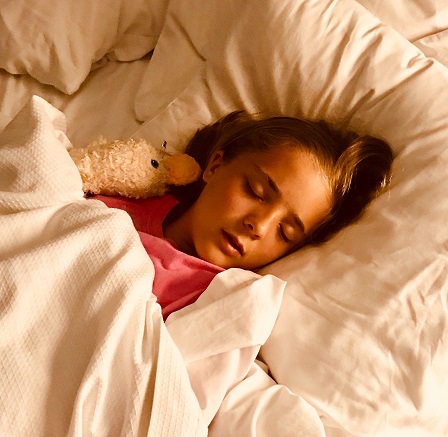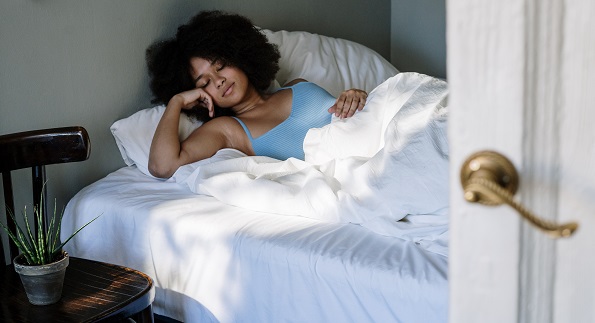By Intisar Seraaj
Discussion Topics:
- Defining sleep hygiene
- Sleep hygiene’s importance for foster parents
- Importance of therapeutic foster parents understanding sleep hygiene
- How sleep hygiene improves overall wellness
- Improving your sleep hygiene
What is sleep hygiene?
Sleep hygiene refers to healthy habits we develop to get good sleep. It also assists in having a better overall quality of life, like improved mental and physical health. Behaviors exhibited all day—not just before bedtime—like what you’re eating and whether you’re exercising can affect how well you sleep too.
The basic concept of sleep hygiene applies to everyone, but what sleep hygiene looks like for everyone can vary. Test different adjustments to find out what helps you sleep the best.
Why sleep hygiene is important for foster parents?
When foster parents have figured out and practiced the best methods of self-care—which sleep hygiene is all about—they can avoid burnout. At Seraaj Family Homes, Inc. we refer to our foster parents as “professional family teachers.” Sleep hygiene is a great independent-living skill for foster parents to teach their child(ren). But first, they must understand what sleep hygiene is and how to do it for themselves. Foster parents should be well-rested to take care of their foster child(ren) efficiently. Child-rearing can already be physically, emotionally, and mentally draining. So, when a parent is well-rested, they can better serve their wards and ultimately themselves.
Equally importantly, foster parents should strive to understand the sleep hygiene of their foster child(ren) and what helps them rest and sleep best, since it’s different person-by-person. Since we work with the special needs population, a part of this is knowing the signs of symptoms from a child’s medication and how their medication can affect their sleep patterns. Another part of life that affects sleep hygiene that foster parents should be aware of for their child(ren) is knowing how certain social activities or happenings (i.e. bullying, parties, romantic relationships, friendships, etc.) affect their sleep.
A whole household with good sleep hygiene creates a better flow within your home where people’s boundaries, including your own, are respected. If everyone is working together to create and maintain a place of peace where good sleep can be had, everyone will be happier once better rested. Good sleep hygiene gives new meaning to phrases like “it’ll all blow over in the morning,” “sleep on it,” and “all you need is a good night’s rest.”
Why should therapeutic foster parents understand sleep hygiene?
Like the cliches say, “when you know better, you do better” and “each one teach one,” understanding sleep hygiene for foster parents is vital because they are role model, teachers, and guides for the youth in their care. The youth we often receive in therapeutic foster care often have no solid foundation for sleep hygiene, like wellness routines, knowing how to properly nourish themselves, and calculating how much sleep they need to function best in the morning. So, it’s up to their professional family teachers to show them how to be more well-rested through taking care of themselves in the best way possible. Good sleep solves problems, and well-rested people save the world.
How can good sleep hygiene improve your overall wellness?
The benefits of being well-rested and having good practices centered around achieving that are endless. So, here are 10 ways good sleep hygiene can improve your overall wellness.
- allows our bodies to repair themselves
- may strengthen your heart against disease
- allows our brains to consolidate our memories and process information
- helps you maintain and lose weight due to effects on hormones and metabolism
- improves concentration and productivity
- can maximize athletic performance
- strengthens your immune system
- fights depression and mood swings
- decreases inflammation in the body
- our nervous systems to work properly
What can you do to improve your sleep hygiene?
As aforementioned, sleep hygiene looks different for everyone, but here are 10 suggestions on how to get started deciding what techniques will help you get the best rest:
- Avoid using electronics 1 to 2 hours before bed, and don’t use them in the bed.
- Drink caffeine only before noon so your body has a chance to digest it and wear off the effects.
- Crack a window to make sure you have plenty of fresh air.
- Exercise daily.
- Create a quiet, comfortable bedroom environment.
- Take a warm bath or shower before bed.
- Meditate or have or quiet time before bed.
- Journal. Write down your worries before going to bed to release them.
- Prioritize your sleep rather than skipping it to work, study, or exercise.
- Set aside 30 minutes right before bedtime to wind down by taking advantage of whatever relaxes you like soft music, stretching, reading, or deep breathing.
Sources: www.healthline.com, newsinhealth.nih.gov, and www.sleepfoundation.org



